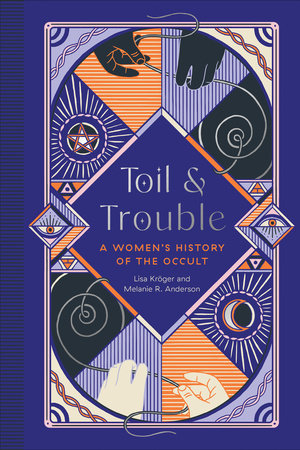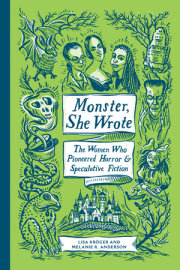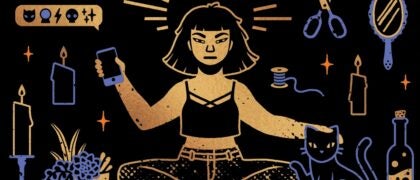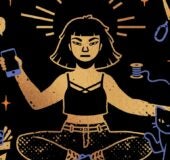In this book, you’ll meet some of the women who helped create or design occult systems and symbols, like the artist behind the most iconic tarot deck and the woman who gave the Ouija board its name—and you’ll also meet women who became professional skeptics or debunkers to hold people accountable, an important role in keeping the occult world ethical. You’ll be introduced to women who used the occult as a stepping-stone to political power, like First Lady Nancy Reagan’s personal psychic, and some who used it to find financial security. And you’ll get to know a wide array of women who have embraced labels like
witch,
voodoo queen, and
Mistress of the Dark.
The occult in US history takes many forms: from accusations of witchcraft in seventeenth-century New England to the development of Spiritualism in the nineteenth century, to the uses of astrology and fortune-telling in the early twentieth century, to the Goddess movement of the mid-twentieth century, to the Satanic Panic of the 1980s and ’90s, and to our current obsessions with psychics, occult paraphernalia, spells, and crystals. Throughout these tumultuous centuries, women have been connected to the occult by the patriarchy as a way of punishing and policing their behavior (for example, the colonial accusations of witchcraft and satanic revels), and women have grasped the occult as an opening to seize independence and power (for example, how the Spiritualist movement gave women voices to speak out about political issues).
As we began thinking about women’s relationships with the occult and the power and backlash that can result, we realized that, while we have read a lot of supernatural fiction by women, we’ve never before delved into all the ways women have participated in the occult and been perceived by the larger society for that participation. What follows are the figures we learned about, the larger social and political issues we pondered, and the stories we want to share about how women, primarily in the United States, have related to their political and social environments through the occult. This relationship seems to ebb and flow over the centuries between cultural backlash and a search for empowerment. It’s a vast and complicated history with many twists and turns, but we are excited to lead you on this journey through the occult as it appears in American women’s lives, embodied by some of the extraordinary individuals who have designed, politicized, promoted, investigated, and embraced it.
Copyright © 2022 by Lisa Kröger and Melanie R. Anderson. All rights reserved. No part of this excerpt may be reproduced or reprinted without permission in writing from the publisher.














